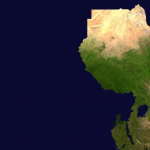About this Episode
In the first of a two-part series, Arif Rafiq separates the various strands of the “String of Pearls” theory with Isaac B. Kardon, which assumed the establishment of Chinese naval military bases from the South China Sea westward to the northern Indian Ocean in Chinese-operated commercial ports. These included ports in Pakistan, Sri Lanka, Bangladesh and Myanmar. However, China’s first overseas military base was set up in 2017 in the East African country, Djibouti, further fueling speculation about China’s ‘strategic strongpoints’. Kardon explains whether missions are prepared for offensive or defensive operations. He talks about the nexus between Chinese party-state officials, state-owned enterprises and private firms in pursuing strategic commercial and foreign policy considerations through the expanding network of commercial ports. Rafiq and Kardon also discuss the debate within China on the dual-use nature of these ports.
About the Guest

Dr. Isaac B. Kardon is an Assistant Professor at the U.S. Naval War College. He specializes in Chinese foreign policy and writes on China’s maritime disputes, Indo-Pacific maritime security and commerce, and China-Pakistan relations. The author of the book “China’s Law of the Sea: The New Rules of Maritime Order”, he holds a PhD in Government from Cornell University and an M. Phil from Oxford in Modern Chinese Studies. He tweets @ibkardon.
Publications by the Guest
- Djibouti: China’s First Overseas Strategic Strongpoint
- Gwadar: China’s Potential Strategic Strongpoint in Pakistan
- Research & Debate—Pier Competitor: Testimony on China’s Global Ports
- China Can Say ‘No’: Analyzing China’s rejection of the South China Sea Arbitration
- China’s Maritime Rights and Interests: Organizing To Become A Maritime Power
- Forget the FONOPs — Just Fly, Sail and Operate Wherever International Law Allows
A Non-Resident Fellow at the Middle East Institute in Washington, DC and president of Vizier Consulting, LLC, a political risk advisory firm focused on the Middle East and South Asia.





